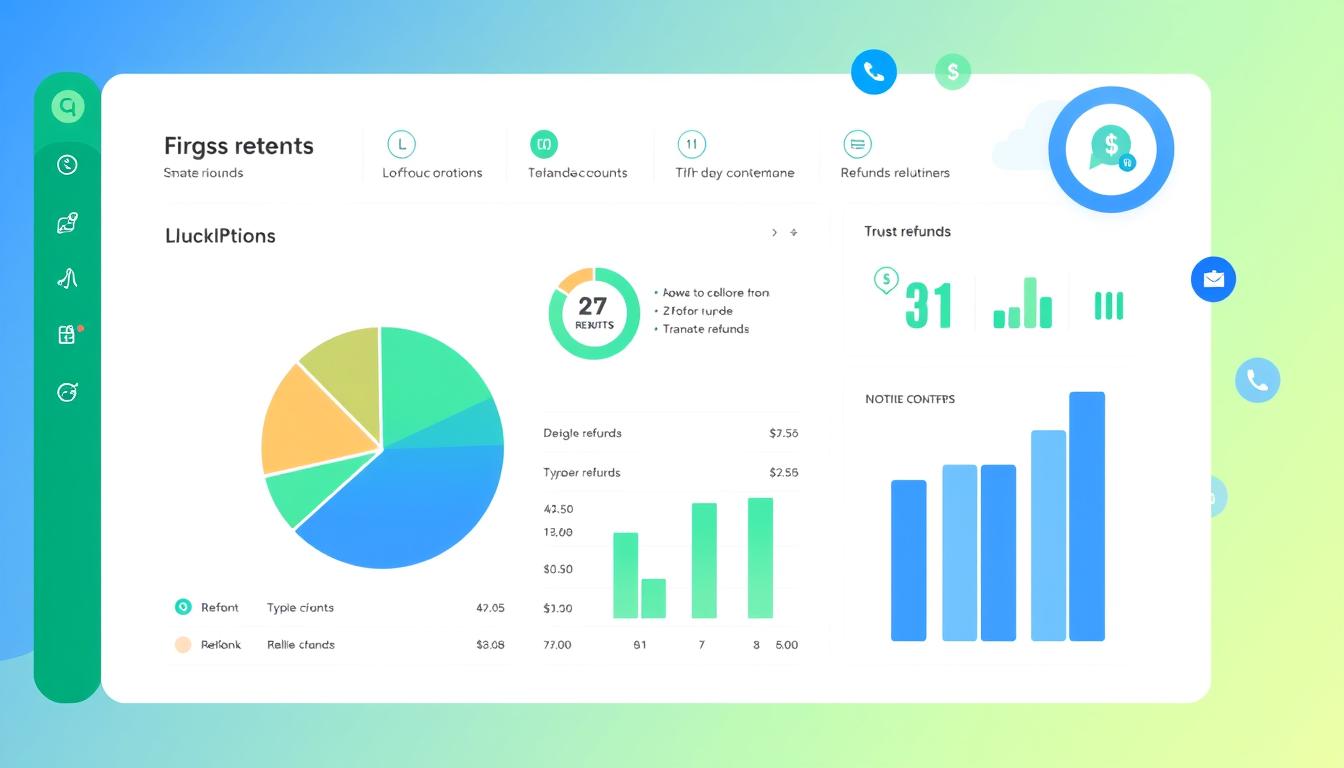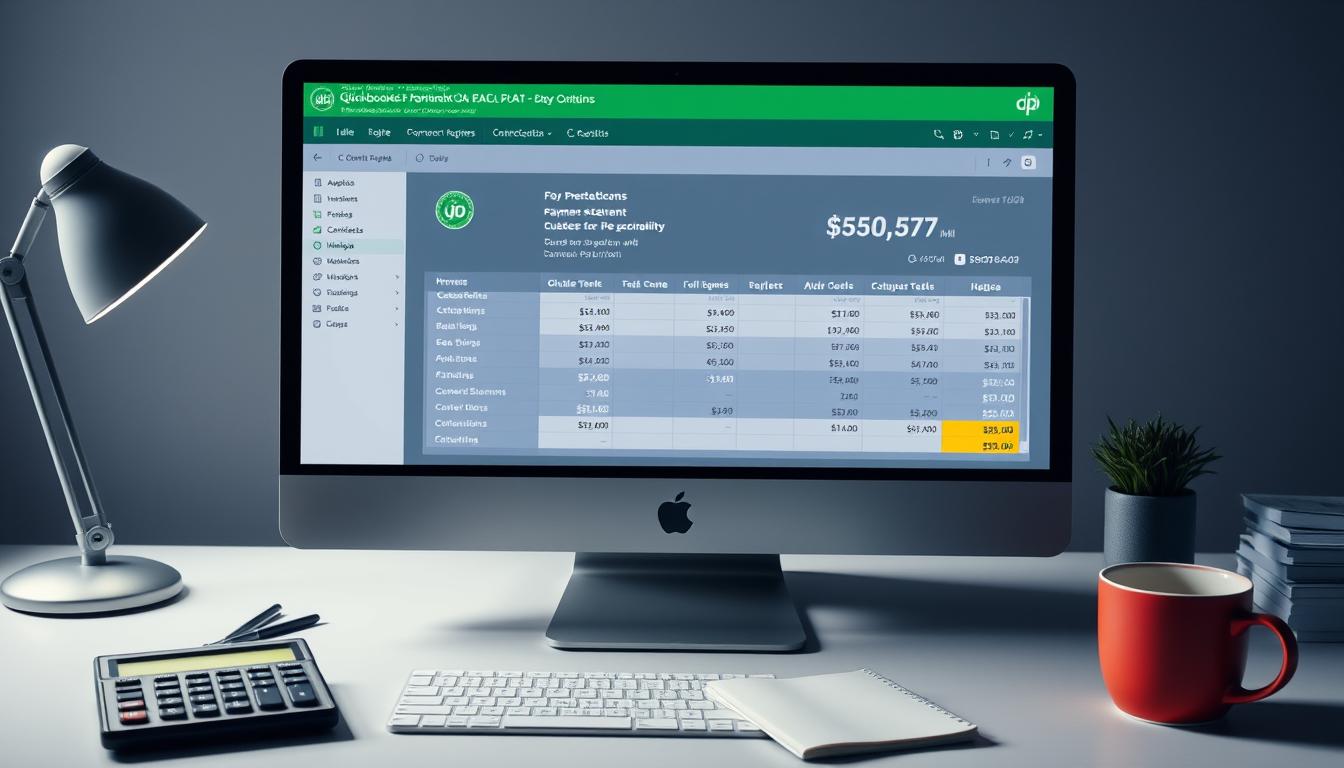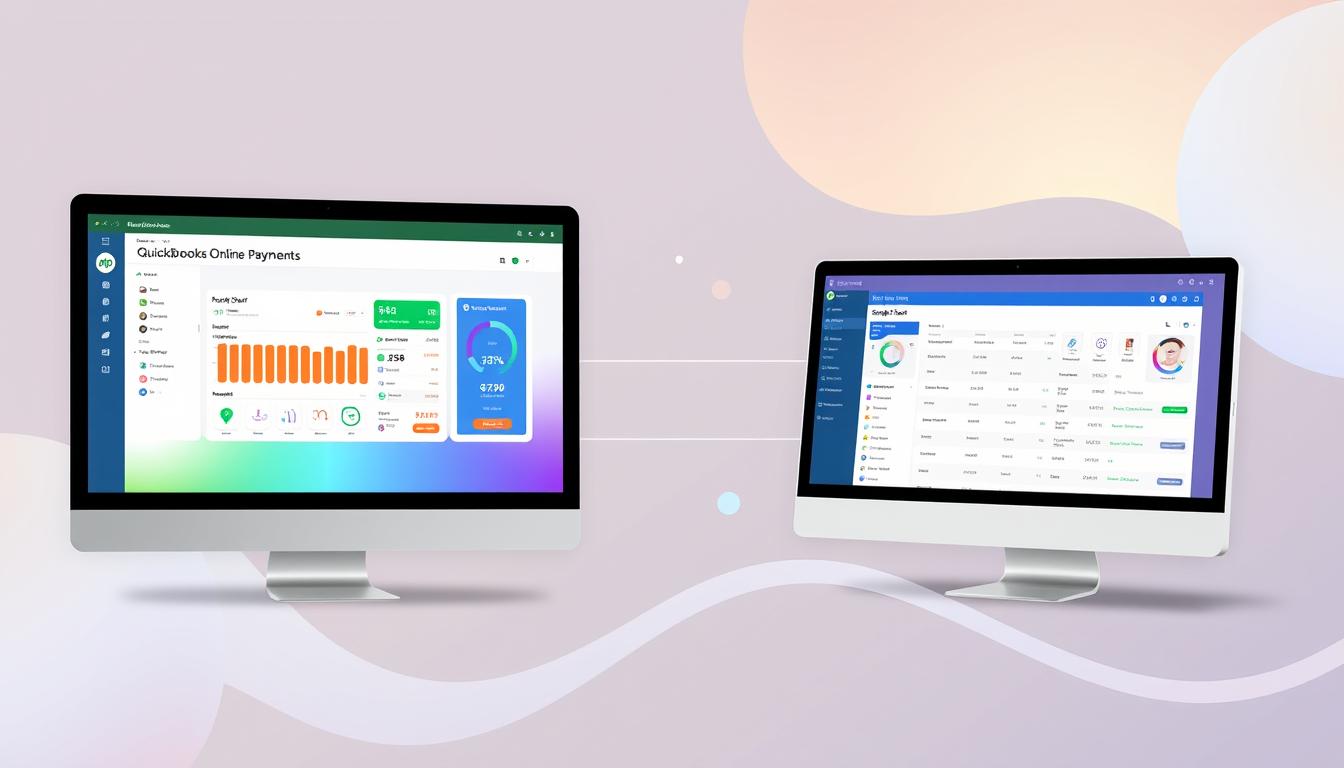
Can you delete history under audit log quickbooks online

Table of Contents
It’s important to know if you can delete entries from the audit log in QuickBooks Online. This is key for businesses that focus on financial accuracy and follow the rules. The audit log QuickBooks Online keeps a detailed history of changes to financial data. This ensures that all account activities are recorded clearly.
By tracking these changes, the audit log is crucial for good financial management. We will look into why the audit log matters and what happens if you try to delete its records. We’ll see how these actions impact your QuickBooks history.
Key Takeaways
- The audit log in QuickBooks Online is essential for maintaining financial transparency.
- Deleting entries from the audit log is generally not supported by the software.
- Audit logs help ensure compliance with legal and regulatory standards.
- Maintaining a detailed audit trail is critical for accurate financial reporting.
- Understanding audit logs aids in better financial decision-making.
Understanding Audit Logs in QuickBooks Online
Audit logs in QuickBooks Online are very important. They help businesses keep track of their money activities. Knowing what audit logs are shows they record every transaction and user action in QuickBooks Online.
What is an Audit Log?
An audit log is a detailed record of all actions in QuickBooks Online. It tracks user changes, financial entry changes, and deletions. The QuickBooks Online audit logs help business owners see their financial transactions clearly. They show who made a change, what was changed, and when.
Importance of Audit Logs for Financial Management
Keeping accurate audit logs is key for good financial management. They help with legal rules and protect against fraud. Businesses use audit logs for financial record-keeping, making it easier to find mistakes and keep financial data safe. These logs help in making better decisions and planning.
| Feature | Benefit |
|---|---|
| Chronological Records | Provides a clear timeline of all transactions. |
| User Tracking | Identifies who made changes and when. |
| Enhanced Transparency | Helps businesses understand financial activities in depth. |
| Fraud Prevention | Detects irregularities in financial behavior. |
| Legal Compliance | Supports adherence to financial regulations. |
Can You Delete Entries from the Audit Log?
Managing entries in QuickBooks Online is key for following financial best practices. QuickBooks Online has a strict audit trail policy that doesn’t let you delete entries from the audit log. This rule helps keep financial records safe and accurate, which is important for checks and audits.
QuickBooks Online Policy on Deleting Audit Trails
The policy for deleting entries in QuickBooks Online is about keeping the audit log complete and clear. It lets you see all changes and transactions easily. This helps with keeping records straight and following rules. Trying to break this rule can lead to legal trouble.
Limitations and Restrictions
QuickBooks Online has strict audit log limits on deleting entries. These rules are important for several reasons:
- They keep a record of all financial actions in order.
- They help meet rules for financial records.
- They stop changes that could mess up audits and reviews.
Trying to delete entries goes against the rules and could hurt your company’s reputation. Following the right steps for managing audit trails is part of good financial management.
| Aspect | Details |
|---|---|
| Policy Type | Audit Trail Policy |
| Deletion Status | Not Allowed |
| Compliance Requirement | Yes |
| Implications of Deleting | Legal Consequences, Data Integrity Risks |
How to Access the Audit Log in QuickBooks Online
To manage your financial records well, knowing how to access the QuickBooks audit log is key. First, log into your QuickBooks Online account. Look for the gear icon in the top right corner of the dashboard. Clicking it opens a menu with various settings.
Then, go to “Account and Settings.” In this section, you’ll see different tabs. Find the “Advanced” tab and click it. This tab has admin options, including the audit log feature.
In the Advanced tab, scroll down to find the “Audit Log” link. Clicking it takes you to the audit log interface. This is where you can see a detailed history of changes and activities in your account.
Checking the audit log regularly helps manage accounting processes. By doing this, businesses can keep a close eye on their finances. They ensure all transactions are recorded correctly.
Reasons to Maintain Audit Log Integrity
Keeping audit logs intact is key for any business. It helps follow rules and avoid financial mistakes. An unchanged audit trail is vital for showing who is responsible and keeping operations clear.
Legal Compliance and Financial Accuracy
Companies must follow laws that require keeping accurate records for audits. The audit log is crucial for proving financial accuracy. Without it, businesses face legal issues and financial problems.
Issues Arising from Deleting Records
Deleting records from audit logs can harm a company’s finances. It can hide the real financial state, causing wrong reports and rule breaks. It also makes people doubt the company’s record-keeping skills.
| Consequences of Deleting Records | Potential Impact |
|---|---|
| Loss of Audit Trail | Decreased accountability and transparency |
| Regulatory Fees | Incur penalties for non-compliance |
| Inaccurate Financial Reporting | Misleading stakeholders and market distortion |
| Trust Erosion | Damaged relationships with clients and investors |
Understanding the Audit Log QuickBooks Online Interface
The QuickBooks audit log interface gives users a detailed look at their financial records. It helps them keep track of transactions better. Knowing how to use it makes finding important entries easier.
Navigating the Audit Log
To get the most out of the audit log, start by learning its layout. It has several key features:
- Search filters to find entries by date or user activity.
- Sorting options for viewing logs by transaction type or recent changes.
- A detailed list of user actions, like creating, editing, or deleting records.
Using these tools makes it easier to find what you need in the QuickBooks audit log. This ensures you can access important info quickly.
Interpreting the Entries
It’s crucial to understand log entries for good financial management. Each entry in the QuickBooks audit log has important details:
- Timestamps that show when changes were made.
- User IDs that tell who made the changes.
- Type of changes that show what transactions were changed, added, or deleted.
By learning how to read log entries, users can check their financial records accurately. This helps keep data safe and reliable in QuickBooks Online.
What to Do If You Find an Error in Your Audit Log
When you find mistakes in QuickBooks audit logs, it’s key to fix them right. This keeps your financial data safe and accurate. We’ll show you how to handle these errors well.
Correcting Mistakes without Deletion
Fixing audit log errors means keeping detailed records. Don’t just delete wrong entries. Think about the mistake and plan how to fix it.
Write down how you correct it and add it to the audit log. This way, everyone knows what changes were made and why.
Using Journal Entries for Corrections
Journal entries in QuickBooks are great for fixing audit log issues. They create a clear record of the correction. This is important for keeping everything transparent.
When you make a journal entry, include details about the mistake, the fix, and any supporting documents. This method keeps your financial records accurate and trustworthy.
Alternatives to Deleting Audit Log Entries
Keeping your audit log data safe is key for following rules and keeping finances right. Instead of deleting logs, look at better ways to handle them. QuickBooks filters can help sort transactions, making it simpler to see what matters without losing important details.
Using Filters to Manage Your Data
QuickBooks filters are a great tool for managing audit logs. They let you pick which entries to look at by date, user, or type of transaction. This makes it easy to find what you need fast, without losing important history. You can change filters as needed, making reviews more efficient.
Exporting Data for Review and Analysis
Exporting audit log data is another smart move. It lets businesses keep backups and do detailed reviews outside QuickBooks. By looking at trends and patterns in the exported log, you can learn more about your financial habits. This way, you keep records safe and make sure you don’t miss out on important info.
Keeping Your QuickBooks Online Data Organized
Keeping your QuickBooks Online data organized is key for any business. Good record-keeping makes your data clear, cuts down on mistakes, and helps with making decisions.
Best Practices for Record-Keeping
Keeping records up to date is crucial. Here are some tips to help:
- Timely Updates: Enter data right away to keep it accurate.
- Logical Categorization: Organize transactions well to make them easy to find and analyze.
- Backup Procedures: Back up your records often to avoid losing data.
Regular Audits and Maintenance Tips
Regular audits help find any problems. Here are some tips for keeping your finances in check:
- Monthly Reviews: Check your transactions every month to catch errors fast.
- Consistency Check: Make sure all your accounts match your bank statements and other financial records.
- Use of Reports: Make and review financial reports often to spot any odd trends.
Impact of Audit Logs on Business Decisions
Knowing how audit logs affect business is key for smart financial choices. These logs keep a detailed record of all transactions. This helps businesses check their financial actions closely.
By looking at this data, companies can match their plans with real results. This makes their strategies more effective.
Using Data for Informed Choices
Good decisions need solid data. Audit logs give businesses a clear view of their money moves. This clarity helps spot spending patterns, income trends, or areas needing improvement.
Decisions based on real data improve budgeting and cash flow. They also lead to smarter investments.
Monitoring Financial Performance
QuickBooks makes it easy to watch over your finances. Audit logs are a key tool for this. They help find any financial issues and fix them.
Checking these logs often helps avoid money problems. It also builds a culture of responsibility in the company.
| Aspect | Impact of Audit Logs | Benefits |
|---|---|---|
| Data Accuracy | Helps pinpoint errors in transactions | Facilitates corrections, ensuring precise financial reporting |
| Trend Analysis | Reveals patterns in revenue and expenses | Informs strategic decisions for better resource allocation |
| Compliance | Aids in meeting regulatory requirements | Reduces risks associated with potential legal issues |
| Operational Efficiency | Identifies procedures needing improvement | Enhances overall workflow and business processes |
Common Misconceptions About Audit Logs
Understanding audit logs is key for good financial management. Many people have audit log misconceptions, especially about deleting data. These wrong ideas can cause security problems and confuse people about data privacy and audit log use. Fixing these myths can really help businesses manage their records better.
Myths Surrounding Data Deletion
One big myth is that users can delete audit log entries without trouble. This idea is dangerous for financial records. QuickBooks Online has a strong rule against deleting audit log entries. This rule keeps financial data safe and shows the value of a detailed audit trail.
Clarifying Data Privacy and Security
Another common mistake is thinking audit logs hurt data privacy. But, managing audit logs well actually makes things safer and keeps data safe. Companies can use audit logs to follow rules and also to protect data better. Learning about audit logs can change how people see them, from scary to useful.
| Myth | Reality |
|---|---|
| Entries can be easily deleted. | Deletion of audit log entries is restricted to maintain integrity. |
| Audit logs compromise data privacy. | Proper management enhances both privacy and security. |
| Audit logs are not necessary for small businesses. | Audit logs provide valuable insights for businesses of all sizes. |
Case Studies: Managing Audit Logs Effectively
Learning from how companies handle their audit logs is very helpful. Audit log case studies show us how good management can make a big difference. These business success stories teach us how to follow rules better and work more efficiently.
Examples of Businesses Successfully Utilizing Audit Logs
Many companies see audit logs as key to their success. For example, a big retail company made their transaction tracking better with audit logs. This helped them spot and fix errors faster, making their financial records more reliable.
A healthcare organization also made a smart move by adding audit logs to their records. They used this to improve patient care and meet health standards. These stories show how audit logs are vital in different fields.
Lessons Learned and Best Practices
There are valuable lessons from these audit log best practices. Here are some key points:
- Training employees on audit logs helps everyone follow the rules.
- Having clear rules for who can see and change logs keeps data safe.
- Checking audit logs often helps catch problems early.
By learning these tips, businesses can use audit logs better. This leads to better performance and trustworthiness.
| Business Type | Audit Log Implementation | Outcome |
|---|---|---|
| Retail | Transaction monitoring | Reduced errors and increased accountability |
| Healthcare | Record-keeping integration | Improved patient care and regulatory compliance |
| Financial Services | Real-time data tracking | Enhanced security and reduced fraud |
Conclusion
Managing audit logs in QuickBooks Online is key to good financial management. The audit log QuickBooks conclusion shows that while you can’t delete entries, keeping logs intact is crucial. This is for legal reasons and to ensure financial reports are accurate.
Knowing the value of audit logs is vital for businesses wanting to do well. QuickBooks Online helps users keep records better and make smart choices with reliable data. This way, they can see past transactions clearly, helping with financial control.
Effective audit log management leads to transparency and accountability in companies. Use QuickBooks Online’s strong features to make better decisions. This will help with following rules and keeping financial records accurate.
FAQ
Can you delete entries from the audit log in QuickBooks Online?
No, QuickBooks Online policy doesn’t allow deleting audit log entries. This rule helps keep financial data safe and follows legal rules.
What is the purpose of an audit log in QuickBooks Online?
The audit log keeps a record of all transactions and changes in QuickBooks Online. It’s key for legal reasons, fraud prevention, and keeping financial records accurate.
How can I access the audit log in QuickBooks Online?
To see the audit log, go to the settings in QuickBooks Online. You can then look at past transactions and activities easily, following QuickBooks’ steps.
Why is maintaining audit log integrity important?
Keeping the audit log accurate is crucial for following laws and keeping financial records right. It helps avoid legal problems and ensures data is correct.
What should I do if I find an error in my audit log?
If you spot a mistake, fix it without losing data. Use journal entries to correct errors. This way, all changes are clearly shown in the audit log.
What alternatives exist to deleting audit log entries?
You can manage the audit log by using filters to find specific transactions. Or, you can export data for review while keeping the log complete.
What are best practices for record-keeping in QuickBooks Online?
Keep records consistent, update them on time, and organize transactions well. Regular audits also help keep records accurate and organized.
How do audit logs impact business decisions?
Audit logs give important data for making business decisions. They help with budgeting, investment, and managing cash flow, improving financial health.
What misconceptions exist about deleting data in audit logs?
Many think they can delete data in audit logs. But, QuickBooks Online policies stop this to protect data and follow laws.
Can you provide examples of businesses effectively managing their audit logs?
Yes, many businesses use audit logs well to follow rules and gain insights. Their stories show how to use audit logs for better decisions and rule-following.
- Tags: intuit quickbooks, intuit quickbooks login, intuit quickbooks online, quickbook, quickbooks, quickbooks accounting software, quickbooks customer service, quickbooks customer service number, quickbooks desktop, quickbooks desktop 2024, quickbooks log in, quickbooks login, quickbooks login online, quickbooks online, quickbooks online accountant, quickbooks online accounting, quickbooks online customer service, quickbooks online login, quickbooks online pricing, quickbooks payroll, quickbooks self employed, quickbooks software, quickbooks support phone number, quickbooks time, quickbooks time login, quickbooks workforce
Top Products
- QuickBooks Desktop Pro 2024 US Version
- QuickBooks Desktop Pro 2023 US Version
- QuickBooks Desktop Pro 2022 US Version
- QuickBooks Desktop Premier 2024 US Version
- QuickBooks Desktop Premier 2023 US Version
- QuickBooks Desktop Premier 2022 US Version
- QuickBooks Desktop Accountant 2024 US Version
- QuickBooks Desktop Accountant 2023 US Version
- QuickBooks Desktop Enterprise 2024 US Version
- QuickBooks Desktop Enterprise 2023 US Version
- QuickBooks for Mac 2024
- QuickBooks for Mac 2023
Popular Posts

How to categorize property tax payable in quickbooks online
Knowing how to categorize property tax payable in QuickBooks Online is key for keeping your financial records right. Property tax payable is the amount your business owes in property taxes. It can greatly affect your financial health. By learning to categorize property tax well, businesses can make sure their financial statements show their true obligations.
This knowledge is crucial as we dive into the steps and best practices for handling property tax payable in QuickBooks Online.

How much is quickbooks per month
Many users want to know the QuickBooks pricing for monthly costs. QuickBooks has various plans for different business needs. This lets users pick the right plan for their financial management.
What affects the QuickBooks monthly cost includes the QuickBooks edition, payment frequency, and extra features. This guide will explain the details of these plans. It will help you understand the costs of using QuickBooks for your business.

How does quickbooks work
QuickBooks is a key accounting software made by Intuit. It helps businesses manage their finances well. It works on a cloud-based platform, so users can access their financial data from anywhere.
This software makes tasks like bookkeeping, invoicing, and financial reporting easier. In this article, we’ll look at QuickBooks’ main features, its users, benefits, and challenges. We aim to help you understand how it can improve your financial management.

How do you record insurance payment in quickbooks
Recording insurance payments in QuickBooks is key for good insurance accounting. It helps business owners manage their money well and keep their books right. This is vital for the health of any business.
In this guide, we’ll show you how to record insurance payments easily. We’ll use QuickBooks guides and tips from accounting experts. This way, you can keep your financial records up to date.

How do you clock in hours in quickbooks desktop
In today’s fast-paced world, tracking time well is key for good payroll management. This article will show you how to clock in hours in QuickBooks Desktop. It’s a top accounting software that makes managing tasks easier. By learning how to track time, businesses can work better and pay employees right.

How are refunds categorized in quickbooks online
Knowing how to categorize refunds in QuickBooks Online is key for good financial management. It’s important to record refunds correctly to keep your finances clear. Businesses of all sizes can benefit from knowing how to do this right.
This knowledge helps make your financial records clear and accurate. It’s a basic step that can make a big difference.

Does quoteiq accept quickbooks online payments
Payment solutions are key in today’s business world. Many are looking into how platforms like QuoteIQ can improve their invoicing. A big question is: does QuoteIQ accept QuickBooks Online Payments? This article explores how QuoteIQ and QuickBooks Online Payments work together.
This shows how important it is to have good payment integration. It helps with cash flow and makes operations smoother. We’ll look at the benefits of using QuoteIQ with QuickBooks Online Payments. Plus, we’ll show you how to set it up.

Can quickbooks recievepayment by statements rather that individual invoices
In today’s fast-paced world, businesses need quick and easy ways to handle payments. Many QuickBooks users wonder if they can pay by statements instead of invoices. This method makes accounting simpler for companies.
Using payment statements has big advantages over traditional invoices. QuickBooks helps businesses manage payments better. This article will show you how payment statements work in QuickBooks and how they can help your business.

Can quickbooks online payments work with simple start
For small business owners, the question of whether QuickBooks Online Payments and QuickBooks Simple Start can work together is key. This integration is vital for managing finances effectively. It helps users handle transactions smoothly while using a basic accounting tool for solo businesses.
QuickBooks Online Payments lets users take payments online, making cash flow management easier. In this article, we explore how these two tools can boost efficiency for small businesses.

Can other income be a main category in quickbook online
QuickBooks Online is a powerful tool for managing your finances. Many wonder if the other income category can be the main one. This software lets you customize how you track income, fitting it to your business’s needs.
This section will guide you through the basics of other income. You’ll learn how to use QuickBooks Online to its fullest. This way, you can make the most of it for your financial management.